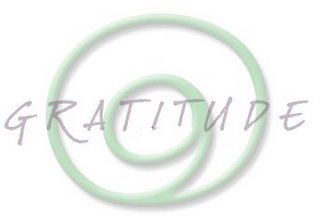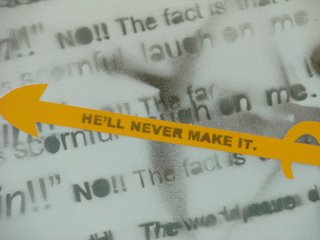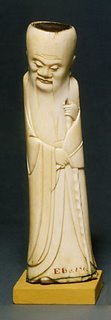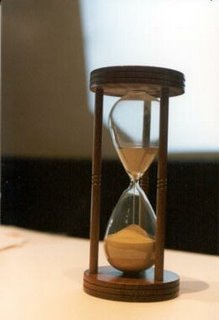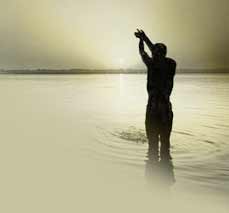
After a two week long stay in Australia, the very thought of getting back to the routine was sickening and mentally tiring. Would I ever find any philanthropist ready to sponsor my trips and not expect any return on investment? Ah! If only wishes were horses, then beggars would ride on it.
Swami Vivekananda once said “Think of an Idea, make it your dream and let it be your blood, skin and everything that you think of and then let go, it will automatically happen.” I found this statement to be quite true in my case. I had chosen China as my country for project during my CCM class. I always wanted to know more about this sleeping giant, the land of Confucious and Tao and above all the land of the famous dragon. Sadly while countries as small as Timor or Senegal are often found a place in the news, the print media have not cared to use as many column centimeters as required to write about China given its geographical size and population. After my trip to Korea and Australia I was asked to fly to Beijing. I could not believe that my dream would become a reality so soon. At Cisco Singapore I had a friend by name Helen Bee hailing from mainland China. She did her graduation in Beijing University and we always used to have regular conversations about the similarities and dissimilarities between the Chinese and Indian societies. I was really amazed to know that the Asian giants shared a lot in common. The only difference probably according to me is the means of expression. Helen Bee had a lot to talk about the political situation and her opinions about the current Chinese government. She always used to talk about the lack of proper media system which gave unbiased news. It is understandable given the fact that the media is wholly controlled by the communist party/government. She recollected Tinnaman Square massacre, Cultural Revolution and how people had immense faith on their leader chairman Mao Tse Tung. Mao was considered a larger than a life figure and he had a huge following during the Cultural Revolution. When ever we used to discuss this topic over lunch, Helen Bee used to get animated and one could see her with her eyes sparkling. She was amazed that as Indians we could remain as a largest democracy with so much of religious, linguistic and cultural divide and yet coexist in harmony. She taught me a couple of words in Chinese and in turn I taught her a few in Tamil. It was amusing to see her twist every single muscle in her facet to say Nanri (Thank you in Tamil). Our discussions were mutually beneficial, it was a first hand information about the political divide and the actual scene in main land China and the problems they face. It is hard to get such minute detail even if one tries to browse the net. I am really indebted to Helen for sparing her time and answering all my questions with utmost patience. I could not claim to be an expert but at least I became confident that I knew something about the Chinese to strike a meaningful conversation in future.
I was all prepared and eagerly waiting for the ‘D’ day. I bought a map of Beijing at the airport and made a list of all places I wanted to visit. I should confess that I viewed the trip to China not as an official one but as a golden opportunity to know more about the country. Unlike my previous trips to Korea and Australia surprisingly I did not encounter any problems either at the immigration point or at the airport. I took a taxi to the hotel. I was under the impression if I could manage to survive in Korea, China should not be a big problem. However my first hurdle started with the taxi driver. He did not understand even a word in English. Unlike the Korean counterpart who spoke in broken English at least, the Chinese taxi driver looked at me as if I had come form some other planet. I tried al tricks to make him understand, I showed him the address of the hotel with the hope he would recognize but little did I realize that he did not know to read English. If it were some other country I probably could have relied on my sign language skills, but how am I to communicate the name of the hotel even though in English sounding like a tongue twister. Moreover Chine being a language with three different intonations for each syllable and even if a single syllable is pronounced differently the meaning would change. I tried locating the hotel in the map but in vain. Finally I tried various combination of pronouncing the name of the hotel and one among those worked and I saw a smile returning to the taxi driver’s face. The taxi finally halted and I looked out of the window with a sigh of relief that all my communication tricks finally paid of. I did not want to waste even a single minute as son as I checked in at the hotel. From the word go I wanted to venture out. I picked up my camera and tripod and left the room. I was told at the reception that the Forbidden City is only a ten minutes drive from the hotel. The receptionist advised me to take the underground train. The easiest option for me was to take a taxi but I decided against it and wanted to try the public transport. I bought the ticket but as the station had two platforms I did not know to which platform I had to go to board the train. I tried explaining to the ticket collector and she like the taxi driver looked at me as if I had descended from some other planet. I felt for a moment that I should have taken a taxi but I tried to rely on my survival skills. The ticket collector had the presence of mind and took me to the railway network map and then pointed out to the place where I had to alight and she directed me accordingly. It was only then did I realize that mere academic knowledge is of very little use if it could not imbibe survival skills. I looked at the lady and said Shishien – Thank you in Chinese and she smiled at me. By the time I reached the place I found to my dismay that the entrance gate to the Forbidden City remained closed for the public. I was just looking around like a lost kid and felt mentally tired to overcome the language barrier ;two experiences of one with the taxi driver and another with the railway ticket collector were enough for me. I was not prepared for another encounter! Suddenly I felt a hand around my shoulder and the last thing that I wanted was to get hauled up by the police for breach of law. I turned and saw a boy and girl. The greeted and spoke to me in English., introduced themselves as art students and enquired to know which country I belong to and how long I would stay. I was not sure whether I should divulge any information about me to them. I was hesitant and guarded in my initial response .Later I found them to be genuine and harmless. After few exchanges, they invited me to view their painting at the art gallery inside the Forbidden City. They took me around the art gallery and tried to explain each painting with detail. Only later did I realize that it was nothing but a marketing gimmick. The girl told me that the proceeds through the sale of paintings were intended to provide scholarships to poor students. She parted with the information only after bought a piece of their work for150 RMB (900 INR). I came to know later from my colleagues that I was so naïve to have paid double the price for the piece Mankind might be divided and distinguished along geographical, political, ethnical and cultural or on the grounds of religion language etc., but remain the same in their traits and emotions ; compassionate, generous, charitable and empathetic on the one hand, anger, hatred, greedy deceit and cunning on the other are common to everyone in some measure without any exception I set aside my above thoughts after a while. I was comfortable talking to them in English and they provided me with a lot of information of tourist relevance. I expressed my desire to visit the great wall and the girl told, since her uncle is a guide with the government who could speak English could help me visit the place. I gave her my contact details and left the place. I was not sure if I did the right thing by giving her my contact details but luckily everything turned out to be alright. The weather was very cold at -3 deg c and unlike in Korea strong cold winds blowing across was spine chilling. In my excitement I left the hotel without the thermal ware. I was almost frozen and my hands become numb. I realized my folly and decided to return to my room. Strangely, all on a sudden I saw a group of people gathering near a place: I become curious and asked the girl who sold the painting to me the reason for such a movement among the people. I was informed by the girl, that the people had gathered to witness the Change of Guard ceremony and the flag would be brought down everyday at 6.00 Pm. Significance of the event began to sink in me, the moment she mentioned the name of the place as Tinnamen Square, a place of Martyrdom of the Chinese students who rose in revolt against the Communist repressive regime and as a consequence were massacred; the place had now become a tourist point of attraction and as well as for the other foreign nationals. Though the change of guard ceremony by itself was spectacular, what was intriguing was that no one was allowed to stay there within a radius of 3-4 Km and everybody was asked to leave to place.
I did not want to expose myself to the inclement weather any further unprotected. I returned to the hotel and had a Chinese body massage. It was quite relaxing and as I was about to retire, I received a telephone call from Peter. He had called to confirm that he would come and pick me up from the hotel, for my intended visit to the Great Wall of China.
Though completely exhausted I did not go to sleep; instead I began positioning India and China in the balance. Both the countries are comparable in terms of size and population, but are poles apart in the realm of political divide. While we are recognized as the largest democracy in the world, China prides itself as the leader of the Communist world, after the demise and disintegration of the erstwhile Soviet Union. The complex of Sino-India relations that have looked up since 1988, after an era of hostility and mutual distrust since the 1962 war, when the Chinese took over more than 30,000 square Km’s of Indian land along the northern border and the lingering memory of the crushing and humiliating defeat still continue to impact the collective Indian Psyche, and could not be wished away easily, not withstanding the periodical boarder talks. Over the years relations between the two had acquired a new dimension in the eyes of the global society given the two countries’ emergence as the two fastest growing mutually competing economies.
The transformation was quite visible in the case of China in every sphere of its economic activity. I must admit that our progress is quite tardy in comparison As I drove along the highways from the airport to the hotel and during my visits to Forbidden City and Tinaman Square and return I could feel that everyone was seemed to be in a tearing hurry as if there would be no tomorrow to be a part of the reform process..The slew of reforms initiated by the communist government during the last two decades had entirely changed the mindset of every individual .In terms of infrastructure and efficient public transport, Beijing is certainly five to ten years ahead of Delhi or Bombay .In its endeavor to earn market et economy status from the global society the communist regime which sang hosannas all along to the planned economy, realized that linguistic barrier would act as an impediment to their reform process. The Chinese people are therefore encouraged and exhorted to learn English and other foreign languages .In Beijing, the Olympic Games have given the learn English drive added urgency with “Olympic English” classes mushrooming in virtually every neighbourhood .Regular English –speaking classes are held in parks and English song performances are televised. I was lost in such thoughts and as a result I went to sleep very late in the night.
I woke up however early next morning and was eagerly awaiting Peter’s call.
Peter came to my room and escorted me to a mini cab in which there were already four occupants. It was a family of four and had come from Estonia. After a few minutes drive we were joined by three others. They were Portuguese nationals employed in an Investment bank in Shangai. I was initially under the impression that I would be part of a Group of Chinese People or people from other parts of China. Never had I imagined that I would be joined by people from different parts of the globe; an Indian (myself) and Estonian family of four and three Portuguese and guided by a Chinese national, transcending boarders. After exchange of pleasantries we shared our experiences of or visits to other tourist points of attraction and about the people, the culture, the impact of reforms etc.
We visited the tombs of Ming dynasty, the Great wall. The sight of the Great Wall was breathtaking and climbing at -3 degree centigrade was a challenging and exhausting experience. The Chinese imperial palaces and buildings had three different entrances. The middle entrance was for the emperor and the other two were for his subjects. The Chinese architecture was simple and every single color and brick had a reason behind it. The roof painted in red symbolized good fortune. The walls were painted in yellow symbolizing earth. The roof of every palatial building will have symbols of animals. They denoted the ranking of the official who stayed inside the building. The highest was nine animals and found only in palaces were the king lived; the dragon represented the king a fictitious animal with a body of the snake, paws of an eagle, horns of deer and the face of an horse symbolizing power and authority. The symbol for the queen was the peacock.
Ancient Chinese worshiped nature, they had separate temples for the Sun, Moon and other gods. The King prayed at the Tempe of Heaven for bumper crops.
Shopping in China could be real fun. I had been to the silk market where counterfeit products were freely sold.. Every product there is considered to be counterfeit. Any tourist who visits Beijing should not miss the Silk market. I went along with my Canadian friend Mike and enjoyed the shopping experience. The girls at the shop literally lure or drag you into the showroom. The always quote a very high prize initially and we were advised to slash the prize nearly by 70%. The means of bargaining was by using a calculator. The shopkeeper enters a prize and we had to enter ours and that is when the game starts; yes it is literally a game. The shopkeeper tries o reduce the number by a fixed percent and you keep incrementing the number from what you initially quoted and finally land up at a point beyond which not agreeable. Even though negotiations world over happens this way, using a calculator in China in the 21st century was something unique. The quality of the product is generally claimed to be bad, nevertheless a great experience, bargaining and negotiating with the help of a calculator.
I cannot claim by my visits to these countries, for a short duration of not more than 2 weeks, I had gathered enough inputs regarding the culture, living style, economy but I it had definitely helped me change my narrow perspective about our country.
Swami Vivekananda once said “Think of an Idea, make it your dream and let it be your blood, skin and everything that you think of and then let go, it will automatically happen.” I found this statement to be quite true in my case. I had chosen China as my country for project during my CCM class. I always wanted to know more about this sleeping giant, the land of Confucious and Tao and above all the land of the famous dragon. Sadly while countries as small as Timor or Senegal are often found a place in the news, the print media have not cared to use as many column centimeters as required to write about China given its geographical size and population. After my trip to Korea and Australia I was asked to fly to Beijing. I could not believe that my dream would become a reality so soon. At Cisco Singapore I had a friend by name Helen Bee hailing from mainland China. She did her graduation in Beijing University and we always used to have regular conversations about the similarities and dissimilarities between the Chinese and Indian societies. I was really amazed to know that the Asian giants shared a lot in common. The only difference probably according to me is the means of expression. Helen Bee had a lot to talk about the political situation and her opinions about the current Chinese government. She always used to talk about the lack of proper media system which gave unbiased news. It is understandable given the fact that the media is wholly controlled by the communist party/government. She recollected Tinnaman Square massacre, Cultural Revolution and how people had immense faith on their leader chairman Mao Tse Tung. Mao was considered a larger than a life figure and he had a huge following during the Cultural Revolution. When ever we used to discuss this topic over lunch, Helen Bee used to get animated and one could see her with her eyes sparkling. She was amazed that as Indians we could remain as a largest democracy with so much of religious, linguistic and cultural divide and yet coexist in harmony. She taught me a couple of words in Chinese and in turn I taught her a few in Tamil. It was amusing to see her twist every single muscle in her facet to say Nanri (Thank you in Tamil). Our discussions were mutually beneficial, it was a first hand information about the political divide and the actual scene in main land China and the problems they face. It is hard to get such minute detail even if one tries to browse the net. I am really indebted to Helen for sparing her time and answering all my questions with utmost patience. I could not claim to be an expert but at least I became confident that I knew something about the Chinese to strike a meaningful conversation in future.
I was all prepared and eagerly waiting for the ‘D’ day. I bought a map of Beijing at the airport and made a list of all places I wanted to visit. I should confess that I viewed the trip to China not as an official one but as a golden opportunity to know more about the country. Unlike my previous trips to Korea and Australia surprisingly I did not encounter any problems either at the immigration point or at the airport. I took a taxi to the hotel. I was under the impression if I could manage to survive in Korea, China should not be a big problem. However my first hurdle started with the taxi driver. He did not understand even a word in English. Unlike the Korean counterpart who spoke in broken English at least, the Chinese taxi driver looked at me as if I had come form some other planet. I tried al tricks to make him understand, I showed him the address of the hotel with the hope he would recognize but little did I realize that he did not know to read English. If it were some other country I probably could have relied on my sign language skills, but how am I to communicate the name of the hotel even though in English sounding like a tongue twister. Moreover Chine being a language with three different intonations for each syllable and even if a single syllable is pronounced differently the meaning would change. I tried locating the hotel in the map but in vain. Finally I tried various combination of pronouncing the name of the hotel and one among those worked and I saw a smile returning to the taxi driver’s face. The taxi finally halted and I looked out of the window with a sigh of relief that all my communication tricks finally paid of. I did not want to waste even a single minute as son as I checked in at the hotel. From the word go I wanted to venture out. I picked up my camera and tripod and left the room. I was told at the reception that the Forbidden City is only a ten minutes drive from the hotel. The receptionist advised me to take the underground train. The easiest option for me was to take a taxi but I decided against it and wanted to try the public transport. I bought the ticket but as the station had two platforms I did not know to which platform I had to go to board the train. I tried explaining to the ticket collector and she like the taxi driver looked at me as if I had descended from some other planet. I felt for a moment that I should have taken a taxi but I tried to rely on my survival skills. The ticket collector had the presence of mind and took me to the railway network map and then pointed out to the place where I had to alight and she directed me accordingly. It was only then did I realize that mere academic knowledge is of very little use if it could not imbibe survival skills. I looked at the lady and said Shishien – Thank you in Chinese and she smiled at me. By the time I reached the place I found to my dismay that the entrance gate to the Forbidden City remained closed for the public. I was just looking around like a lost kid and felt mentally tired to overcome the language barrier ;two experiences of one with the taxi driver and another with the railway ticket collector were enough for me. I was not prepared for another encounter! Suddenly I felt a hand around my shoulder and the last thing that I wanted was to get hauled up by the police for breach of law. I turned and saw a boy and girl. The greeted and spoke to me in English., introduced themselves as art students and enquired to know which country I belong to and how long I would stay. I was not sure whether I should divulge any information about me to them. I was hesitant and guarded in my initial response .Later I found them to be genuine and harmless. After few exchanges, they invited me to view their painting at the art gallery inside the Forbidden City. They took me around the art gallery and tried to explain each painting with detail. Only later did I realize that it was nothing but a marketing gimmick. The girl told me that the proceeds through the sale of paintings were intended to provide scholarships to poor students. She parted with the information only after bought a piece of their work for150 RMB (900 INR). I came to know later from my colleagues that I was so naïve to have paid double the price for the piece Mankind might be divided and distinguished along geographical, political, ethnical and cultural or on the grounds of religion language etc., but remain the same in their traits and emotions ; compassionate, generous, charitable and empathetic on the one hand, anger, hatred, greedy deceit and cunning on the other are common to everyone in some measure without any exception I set aside my above thoughts after a while. I was comfortable talking to them in English and they provided me with a lot of information of tourist relevance. I expressed my desire to visit the great wall and the girl told, since her uncle is a guide with the government who could speak English could help me visit the place. I gave her my contact details and left the place. I was not sure if I did the right thing by giving her my contact details but luckily everything turned out to be alright. The weather was very cold at -3 deg c and unlike in Korea strong cold winds blowing across was spine chilling. In my excitement I left the hotel without the thermal ware. I was almost frozen and my hands become numb. I realized my folly and decided to return to my room. Strangely, all on a sudden I saw a group of people gathering near a place: I become curious and asked the girl who sold the painting to me the reason for such a movement among the people. I was informed by the girl, that the people had gathered to witness the Change of Guard ceremony and the flag would be brought down everyday at 6.00 Pm. Significance of the event began to sink in me, the moment she mentioned the name of the place as Tinnamen Square, a place of Martyrdom of the Chinese students who rose in revolt against the Communist repressive regime and as a consequence were massacred; the place had now become a tourist point of attraction and as well as for the other foreign nationals. Though the change of guard ceremony by itself was spectacular, what was intriguing was that no one was allowed to stay there within a radius of 3-4 Km and everybody was asked to leave to place.
I did not want to expose myself to the inclement weather any further unprotected. I returned to the hotel and had a Chinese body massage. It was quite relaxing and as I was about to retire, I received a telephone call from Peter. He had called to confirm that he would come and pick me up from the hotel, for my intended visit to the Great Wall of China.
Though completely exhausted I did not go to sleep; instead I began positioning India and China in the balance. Both the countries are comparable in terms of size and population, but are poles apart in the realm of political divide. While we are recognized as the largest democracy in the world, China prides itself as the leader of the Communist world, after the demise and disintegration of the erstwhile Soviet Union. The complex of Sino-India relations that have looked up since 1988, after an era of hostility and mutual distrust since the 1962 war, when the Chinese took over more than 30,000 square Km’s of Indian land along the northern border and the lingering memory of the crushing and humiliating defeat still continue to impact the collective Indian Psyche, and could not be wished away easily, not withstanding the periodical boarder talks. Over the years relations between the two had acquired a new dimension in the eyes of the global society given the two countries’ emergence as the two fastest growing mutually competing economies.
The transformation was quite visible in the case of China in every sphere of its economic activity. I must admit that our progress is quite tardy in comparison As I drove along the highways from the airport to the hotel and during my visits to Forbidden City and Tinaman Square and return I could feel that everyone was seemed to be in a tearing hurry as if there would be no tomorrow to be a part of the reform process..The slew of reforms initiated by the communist government during the last two decades had entirely changed the mindset of every individual .In terms of infrastructure and efficient public transport, Beijing is certainly five to ten years ahead of Delhi or Bombay .In its endeavor to earn market et economy status from the global society the communist regime which sang hosannas all along to the planned economy, realized that linguistic barrier would act as an impediment to their reform process. The Chinese people are therefore encouraged and exhorted to learn English and other foreign languages .In Beijing, the Olympic Games have given the learn English drive added urgency with “Olympic English” classes mushrooming in virtually every neighbourhood .Regular English –speaking classes are held in parks and English song performances are televised. I was lost in such thoughts and as a result I went to sleep very late in the night.
I woke up however early next morning and was eagerly awaiting Peter’s call.
Peter came to my room and escorted me to a mini cab in which there were already four occupants. It was a family of four and had come from Estonia. After a few minutes drive we were joined by three others. They were Portuguese nationals employed in an Investment bank in Shangai. I was initially under the impression that I would be part of a Group of Chinese People or people from other parts of China. Never had I imagined that I would be joined by people from different parts of the globe; an Indian (myself) and Estonian family of four and three Portuguese and guided by a Chinese national, transcending boarders. After exchange of pleasantries we shared our experiences of or visits to other tourist points of attraction and about the people, the culture, the impact of reforms etc.
We visited the tombs of Ming dynasty, the Great wall. The sight of the Great Wall was breathtaking and climbing at -3 degree centigrade was a challenging and exhausting experience. The Chinese imperial palaces and buildings had three different entrances. The middle entrance was for the emperor and the other two were for his subjects. The Chinese architecture was simple and every single color and brick had a reason behind it. The roof painted in red symbolized good fortune. The walls were painted in yellow symbolizing earth. The roof of every palatial building will have symbols of animals. They denoted the ranking of the official who stayed inside the building. The highest was nine animals and found only in palaces were the king lived; the dragon represented the king a fictitious animal with a body of the snake, paws of an eagle, horns of deer and the face of an horse symbolizing power and authority. The symbol for the queen was the peacock.
Ancient Chinese worshiped nature, they had separate temples for the Sun, Moon and other gods. The King prayed at the Tempe of Heaven for bumper crops.
Shopping in China could be real fun. I had been to the silk market where counterfeit products were freely sold.. Every product there is considered to be counterfeit. Any tourist who visits Beijing should not miss the Silk market. I went along with my Canadian friend Mike and enjoyed the shopping experience. The girls at the shop literally lure or drag you into the showroom. The always quote a very high prize initially and we were advised to slash the prize nearly by 70%. The means of bargaining was by using a calculator. The shopkeeper enters a prize and we had to enter ours and that is when the game starts; yes it is literally a game. The shopkeeper tries o reduce the number by a fixed percent and you keep incrementing the number from what you initially quoted and finally land up at a point beyond which not agreeable. Even though negotiations world over happens this way, using a calculator in China in the 21st century was something unique. The quality of the product is generally claimed to be bad, nevertheless a great experience, bargaining and negotiating with the help of a calculator.
I cannot claim by my visits to these countries, for a short duration of not more than 2 weeks, I had gathered enough inputs regarding the culture, living style, economy but I it had definitely helped me change my narrow perspective about our country.



